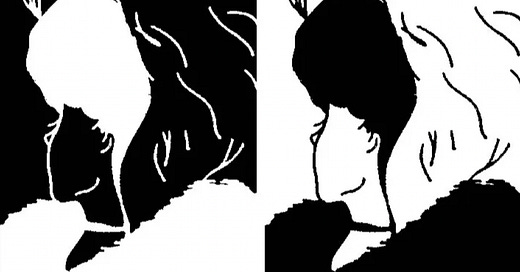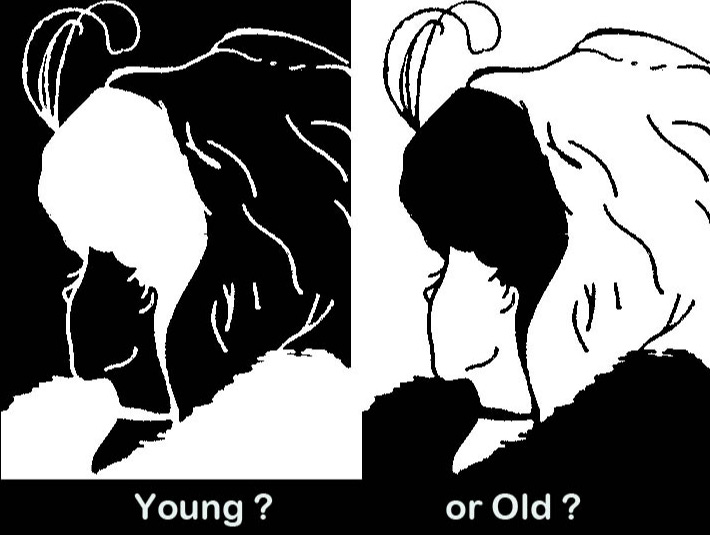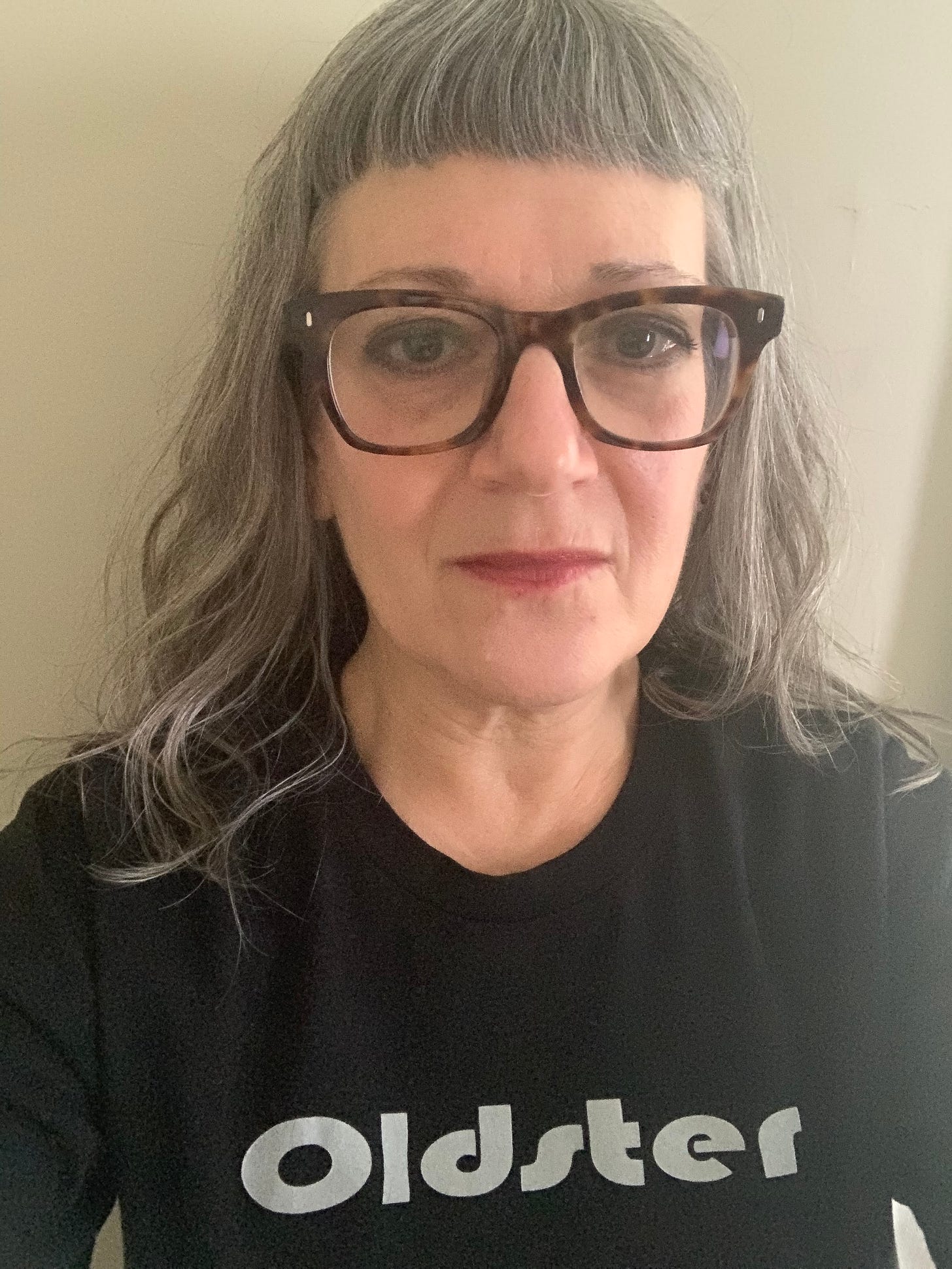Q: Who Qualifies As An Oldster? A: Everyone. Here's Why...
Oldster Magazine is not like other aging-related media. A word about how and why I'm exploring what it means to travel through time in a human body—*at every phase of life.*
It happens like clockwork: I post a questionnaire or essay by someone in their 30s, 40s—sometimes even 50s or 60s—and a few of the eldest Oldsters lash out. They post angry comments, or they email me, or they take to social media.
“You call that an Oldster?!” they exclaim. “And here I thought this newsletter was going to help me navigate life in my mid-80s!” wrote one. (I’m 57. I have no idea how to navigate life in one’s mid-80s.) “I didn’t *subscribe to this publication to read about young people!” wrote several—about posts by everyone from a 36-year-old to a 61-year-old. (*Nearly all of the complainers aren’t paying subscribers, so I don’t know why they feel so incensed that a publication they receive for free isn’t exactly to their liking.)
Oldster Magazine isn’t about old people. Well, not exclusively, anyway. This is not AARP.
It’s never a large number of readers making noise, just a few each time. But it happens reliably enough, and it bugs me enough—and there are enough new readers now (thank you for signing up!)—that I wanted to take a moment to make the following clear:
Oldster Magazine isn’t about old people.
Well, not exclusively, anyway. This is not AARP. It’s not one of the wonderful sites or podcasts (mostly) dedicated to women 40 and over, many of which I enjoy. (Shout out to Girls of a Certain Age, Everything is Fine, Revel, TueNight, NextTribe, Bloom, Full Grown People and so many others.)
No, Oldster Magazine is about people (of all genders) getting older. (I’m using the term “oldster” subversively, because I want to question who we consider to be “old” as we move through life.) Oldster Magazine applies a magnifying lens on the milestones we celebrate, then grieve as we move past them, beginning in childhood and extending to old age and death. It reconsiders life’s many shifts from phase to phase, and what those shifts mean to us as we transition through and past them.
And it’s about questioning our understandings of which shifts we’re supposed to go through when. I absolutely love it when contributors write about living their lives according to their own scripts, along alternative timelines—old people who act “young for their age,” and young people who “act old for their age.” People reinventing themselves professionally in their 40s or 50s or 60s or 70s. People discovering fundamental truths about who they really are as late as their mid-60s.
These stories appeal to me because all my life, I’ve felt out of step with my peers. I have been mulling what that means just about forever. As I wrote in an early post, and reiterated when Substack interviewed me, my life-long fascination with age and milestones began when I was just 10, and my uncle remarked, “Wow, you’ll never be one digit again…” I felt blindsided by the news of that milestone. I had the sense it was supposed to mean something—what, I didn’t know. Not knowing felt both exhilarating and terrifying. That caught my attention and never let it go.
Oldster Magazine is about people (of all genders) getting older. It’s about the milestones we celebrate, then grieve as we move past them, beginning in childhood. It’s about life’s many shifts from phase to phase, and what those shifts mean to us as we transition through and past them.
Now that I’m in my mid-50s and experiencing a whole host of changes, not to mention more pronounced ageism than I’d encountered before, my fascination has grown into a full-blown obsession.
Of course I’m interested in what people my age and older are going through. But I’m also interested in the experiences and perspectives of people younger than me—like, as Chloe Caldwell noted in her questionnaire earlier this week, what happens to women in the one single year between 35 and 36, when our youth-obsessed culture begins to discount them as invisible, and cruel biology deems those who become pregnant “of advanced maternal age.” They are literally having “geriatric pregnancies” in their mid-30s.
It was also interesting for me to read what Chloe had to say about the loss of innocence and freedom that occurs for girls the moment they begin to menstruate. It’s of a piece with what Carolita Johnson has to say about that. Those two writers are roughly twenty years apart in age, but both their perspectives have given me food for thought and enlightened me, and in my mind, are equally valid as Oldster Magazine material.
Similarly, I found it interesting when a 30-year-old contributor lamented no longer being eligible for 30-Under-30 lists in publishing. Do you remember how old 30 seemed when you were 25? I sure do. I also remember being 22 at my first magazine job and thinking my 25-year-old co-worker was some kind of wise old sage. 😂
What’s more, as our culture has shifted over time, so have the experiences of being both young and old. It all has different meaning than it did for prior generations. I find those differences fascinating and worth examining.
But here’s the most important reason I include people of all ages: I am trying to de-stigmatize and normalize the effects of aging by showing that it’s happening to everyone of every age, all the time. And I’m trying to keep Oldster Magazine from becoming the kind of silo that only covers (and therefore appeals to) a narrow group of people.
When I feature a broad range of contributors, it attracts a broader range of readers. Younger people are exposed to the experiences and perspectives of older people, and vice versa. Young and old, we all have so much to learn from each other.
Here’s the most important reason I include people of all ages: I am trying to de-stigmatize and normalize the effects of aging by showing that it’s happening to everyone of every age, all the time. And I’m trying to keep Oldster Magazine from becoming the kind of silo that only covers (and therefore appeals to) a narrow group of people.
That doesn’t mean every reader is going to like every single piece. I understand and even expect that. It’s fine.
But bear in mind that Oldster Magazine is a project into which I invest a great amount of thought and care. I work hard at it because it matters to me, and I hope to grow it in a few directions. If you don’t like one of the pieces, or object to me including younger voices, remind yourself that I’m trying to create something unique and different here—that this in fact is not AARP. And don’t worry—there’ll likely be another piece you enjoy, from someone in or near your age group, pretty soon.
Above all, though, please be kind—to my contributors of all ages, and to me.
Thank you for subscribing. I so appreciate everyone’s support!
PS Each time some scolds me for featuring people younger than them, I point them to Oldster’s “About” page, where a couple of months ago I posted some Frequently Asked Questions. For convenience, and since many new readers have recently signed up, I’m also copying and pasting those FAQs right here:
Frequently Asked Questions:
What is Oldster Magazine?
Oldster Magazine explores what it means to travel through time in a human body—of any gender, at every phase of life. It focuses on the good, the bad, and the ugly we experience with each milestone, starting early in life. It’s about the experience of getting older, and what that means at different junctures.
Remember when you were about to turn 20, and it was a big, scary deal? Or 30? Or 40? Remember when you were in your 20s or 30s and you thought people in their 40s were absolutely ancient? Remember the first time you realized that moving into a new phase of life—graduating, getting married, becoming a parent, getting a major promotion, retiring—meant that you would be leaving behind another phase of life? That’s what Oldster Magazine explores.
A more serious part of the Oldster Magazine mission is de-stigmatizing and normalizing aging by demonstrating that’s it’s happening to everyone, of all ages, all the time.
How often will I receive a new issue?
Oldster will appear in your email inbox at least twice a week, but most weeks, it’s more like four times, and sometimes even five. I did not set out to publish a daily publication—and it is a lot of work, and I am doing this all by myself—but I am really enjoying this work and it might be the only thing keeping me vaguely sane through this crazy time in the world.
If you can’t find it and you have gmail, check your “promotions” folder.
What’s up with the name?
The overwhelming majority of subscribers *get* that I am using the term “oldster,” an old-timey borderline slur, subversively. They realize it’s tongue-in-cheek, and like it a lot. I hope the handful of readers who don’t *get* it will eventually catch on.
Who qualifies as an “oldster”?
Everyone. You read that right: everyone qualifies as an oldster. Oldster Magazine is NOT about old people. Well, not exclusively about old people. (And who decides at what age “old” begins, anyway?) It’s about all people, who are having the experience of getting older.
“You call a person who is (28, 30, 47, 67, 71…) and oldster?! Gimme a break!”
Sometimes the eldest of the oldsters get mad at me for featuring contributors who are younger than they are. But I said what I said: Oldster Magazine is about the experience of aging, which everyone who is alive is experiencing. Everyone is an oldster to people who are younger, and a youngster to people who are older. Oldsterism is all relative.
Again, part of the Oldster Magazine mission is both de-stigmatizing and normalizing aging by demonstrating that’s it’s happening to everyone, of all ages, all the time.
Who is behind this?
Oldster Magazine is the brainchild of its 57-year-old editor-in-chief, Sari Botton, a writer, editor, and teacher living in Kingston, NY, best known for editing Goodbye to All That: Writers on Loving & Leaving NY, and for the five years she worked as the essays editor for Longreads. (She is writing this text right now, even though it appears in the third person.)
How much do you pay contributors?
Right now, with what I have, I generally pay $50 for the questionnaire and very short blog-type posts, and $100 for more substantial posts/essays—with a few exceptions. I’d like to be able to pay more, but I’m doing what I can with what I’ve got.
There’s an awful lot of professional writers featured. Why is that?
Writers are generally who you hire to write for magazines. They (myself included) have been honing their craft for years, sometimes decades, and I’m fortunate that so many of them are willing to contribute here, despite my limited budget.
That said, I do hope to eventually include more interviews and podcasts episodes with “regular people,” and to add shorter blog post formats so that more non-writers can easily contribute.
You also feature an awful lot of Gen X-ers.
Well…I happen to be Gen X myself, and I’m acquainted with a lot of peers. Also, Generation X as a demographic is going through some interesting age-related changes right now and I’m curious about how others are handling them. We were latch-key kids who grew up too fast, then swung the other way and got stuck in protracted adolescence, which makes the “adulting” milestones in our forties and fifties feel really, really weird.
I will note, however, that I am working on making sure other age groups are also sufficiently represented.
How can I get one of those Oldster tee shirts I’ve seen Sari wear in photos?
You can order Oldster Magazine Merchandise—tee shirts and mugs—from my Etsy Store.







This— “Here’s the most important reason I include people of all ages: I am trying to de-stigmatize and normalize the effects of aging by showing that it’s happening to everyone of every age, all the time…”.
Oldster is anti-ageist.
I’m on the other side of 60. By Including all ages, your publication makes me feel relevant!
I'm 71 and was laid off day 1 of my state's pandemic lockdowns - the only "oldster" surrounded by GenZ and ME-lennials and the only employee not given a remote work option. This despite in a decade of no work missed ever - compared with GenZ who were frequently absent while I picked up their neglected work assignments. What I see is a preponderance of online and print articles trying to convince "oldsters" that it's all in their heads and there's no such thing as ageism; that if one just engages in "positive thinking" they can overcome all microaggressions against "Oldsters." Just not true. Ageism is seriously engaged in, it is still widely practiced and fully accepted, but it is dangerous to all types of health from financial health to mental health and even physical health as many health care providers engage in ageism with every patient (esp. women patients) over 40. If I see more focus on DOING something about ageism instead of the victim blaming implied in "just change your mindset and you can live forever" then I will happily subscribe to those blogs and news outlets that actually tackle the problem instead of deflecting it against those who experience it daily.